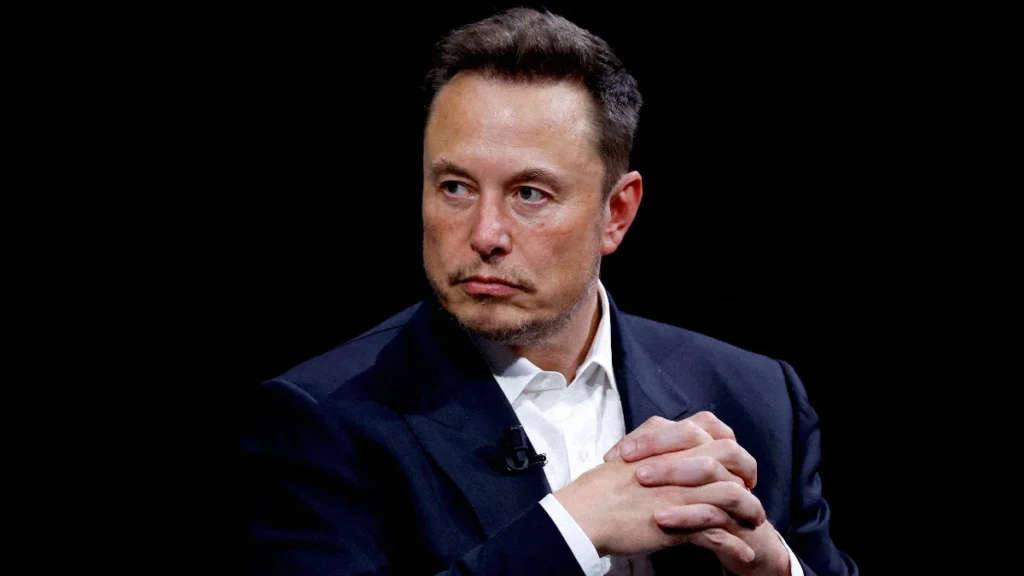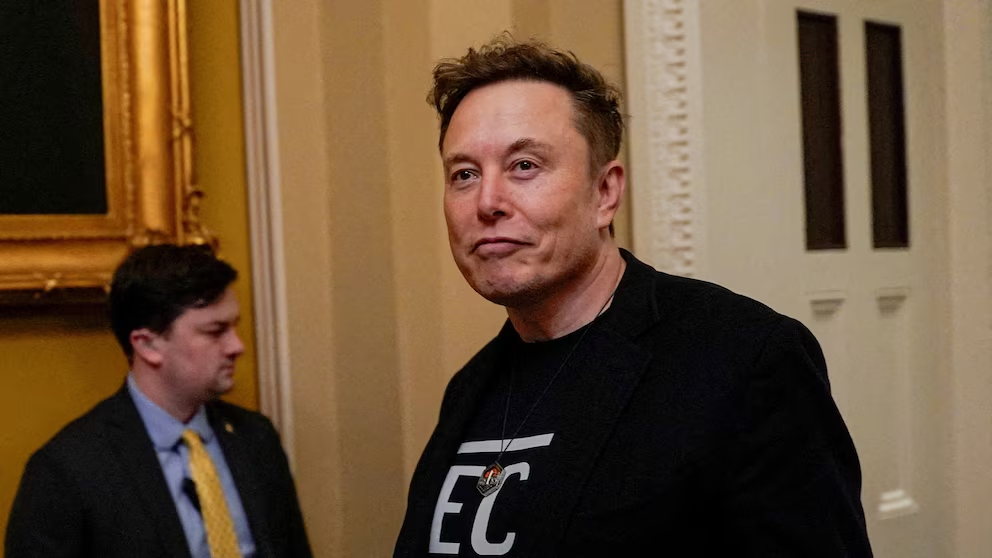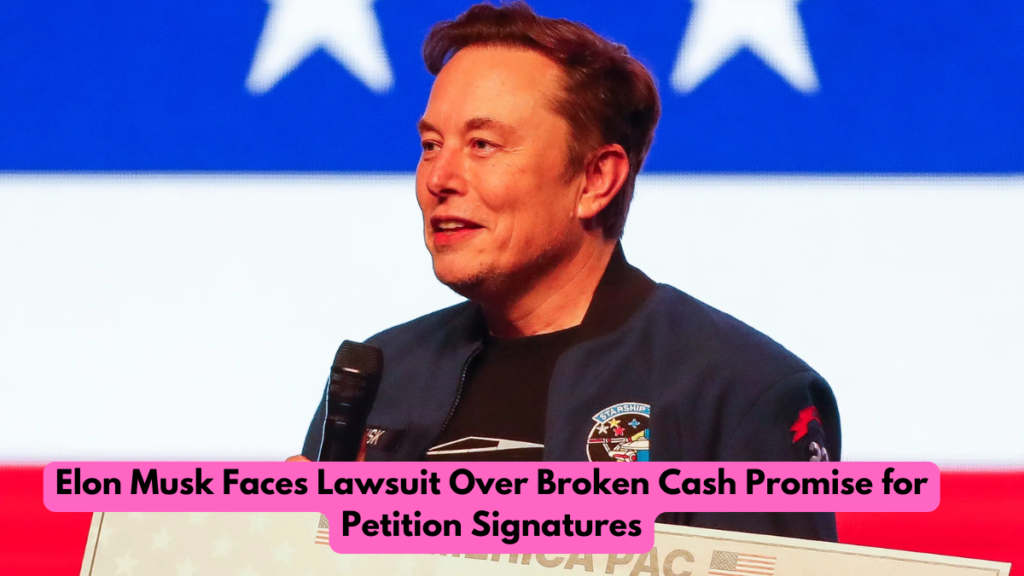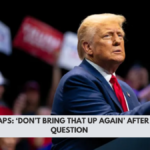A Pennsylvania man has filed a class-action lawsuit against billionaire Elon Musk and his political action committee (PAC), America PAC, accusing them of failing to compensate him and others for collecting petition signatures during the 2024 election cycle. The lawsuit alleges a breach of contract and has reignited debate about the ethics of financial incentives in political campaigning.
The Allegations
The plaintiff, identified only as “John Doe” in court documents to protect his identity, claims he was promised $100 per signature by America PAC in exchange for helping gather support for a petition centered on free speech and Second Amendment rights. Additionally, the PAC offered bonuses for referring other canvassers to join the initiative.
According to the lawsuit, Doe collected a substantial number of signatures and made multiple referrals, entitling him to more than $20,000 in compensation. However, he alleges that the majority of these promised payments never materialized.
“John Doe and similarly situated individuals were lured with the promise of quick money,” the complaint states. “Instead, they were left financially burdened and emotionally distressed.”
Background on America PAC’s Campaign

America PAC was created to support Musk’s loosely affiliated political efforts in 2024. The PAC’s campaign was largely focused on rallying voters around issues like freedom of expression, technology deregulation, and gun rights.
One of its more controversial strategies involved offering cash payments to volunteers willing to collect petition signatures. The initiative quickly drew attention for its scale, with some online ads promising up to $100 per valid signature and additional referral bonuses. Some of these recruitment efforts were widely promoted on social media platforms associated with Musk.
This lawsuit is not the first time Musk’s political maneuvers have drawn legal scrutiny. In late 2024, the Philadelphia District Attorney’s Office initiated an investigation into a $1 million-a-day giveaway Musk’s team promoted to encourage voter turnout in swing states like Pennsylvania. Critics argued the campaign blurred ethical and legal lines. Although some giveaways were ultimately allowed to proceed, they were sharply criticized by election law experts and watchdog groups.
America PAC Responds
In a brief statement, America PAC acknowledged that payments were offered for signature collection efforts but claimed that some payments were withheld due to “potential fraud.”
“We paid thousands of canvassers across the country,” said a spokesperson for the PAC. “However, in cases where we detected irregularities or suspected falsified signatures, payments were held pending verification.”
The PAC did not comment specifically on Doe’s claims or the broader class-action aspect of the lawsuit.
Legal and Ethical Implications
The case raises pressing questions about the legality and transparency of offering monetary rewards for political participation. While paying individuals to gather signatures is not inherently illegal, state and federal laws require full compliance with election regulations, including accurate record-keeping and proper disclosures.
Legal experts have pointed out that such practices, if not handled correctly, can lead to violations of the Federal Election Campaign Act (FECA) or state-level laws that prohibit inducements for political actions. More information about campaign finance rules can be found on the Federal Election Commission (FEC) website.
In Pennsylvania, for example, the Department of State outlines clear guidelines on election-related activities and the use of funds for canvassing or petitioning. Their regulations can be reviewed at www.dos.pa.gov.
Emotional and Financial Toll
The lawsuit claims that beyond financial loss, the plaintiff has endured emotional distress due to unmet financial expectations. The complaint argues that Doe relied on the income from the PAC to pay for essentials such as rent and food, and the nonpayment caused serious hardship.
“This is about more than money,” the plaintiff’s attorney said in a statement. “It’s about holding those in power accountable for promises made to everyday Americans who believed they were contributing to democracy.”
Potential Consequences for Musk and America PAC

If the court sides with the plaintiff, the ruling could set a precedent for how political committees must manage contractual agreements with volunteers or paid operatives. The lawsuit is seeking class-action certification, which could open the door for hundreds or even thousands of similar claims.
Elon Musk has not personally commented on the case. However, as the de facto figurehead of America PAC and a prominent public voice, any legal entanglements are likely to fuel broader scrutiny of his political ambitions.
What Happens Next?
The case is currently being reviewed by the Eastern District Court of Pennsylvania. A hearing is expected in the coming weeks to determine whether the class-action status will be approved.
Voters and volunteers involved in similar activities with America PAC are being encouraged to come forward if they believe they were shortchanged or misled. Interested parties may also file complaints with the U.S. Election Assistance Commission (EAC) or consult with a legal professional to explore their options.
If you believe you have been impacted by unpaid political campaign work, you can learn more about your rights through the U.S. Department of Labor or file a complaint through your state’s election oversight board.

Vikas is a seasoned finance writer with a keen eye for unraveling complex global financial systems. From government benefits to energy rebates and recruitment trends, he empowers readers with actionable insights and clarity. When he’s not crafting impactful articles, you can find him sharing her expertise on Social Media. You can connect with him via email at [email protected].









